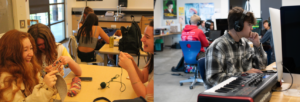Intersession 2024: Strengths-Based Competency Development at Sonoma Academy (CA, USA)
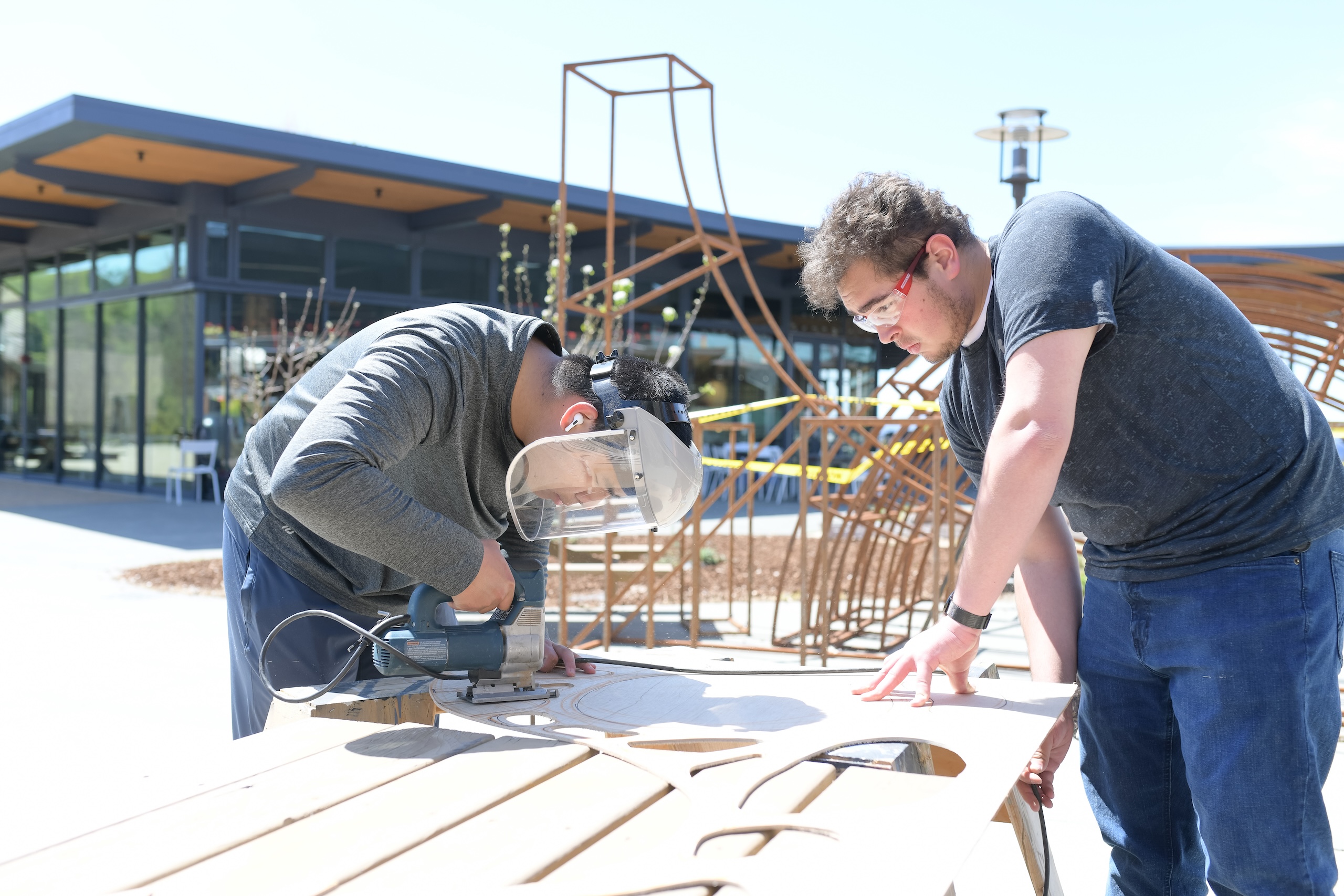
Anyone interested in experiential education knows that in order for an experiential program to be successful, the curriculum must be thoughtfully designed. The key to good curricular design is a well-defined understanding of the competencies we hope to develop in our students through our program. Defining competencies leads to program alignment, improved stakeholder communication, and a pathway toward ensuring student learning and growth.
Over the past few years, I have witnessed the ways colleagues from other schools have led processes to define competencies with their communities, by aligning and engaging faculty and administrators in embracing competency-based curriculum. And although I leave conversations and presentations energized and impressed, I find myself also wondering how I can apply their examples to the program that I lead.
Sometimes processes at other schools involve some sort of reimagining of the existing program and replacing it with something new, or they develop an elective program that only a portion of the student body experiences. What differs with the program at Sonoma Academy (which I imagine might be similar at some schools) is that we have an existing program that has a lot to offer our students. The program is required of all of our students, and much of what we do in this program is at the core of our school’s identity. We don’t necessarily want to significantly change a valuable program, but we do want to maximize its benefit and ensure that it is meaningful for every student.
Sonoma Academy’s Intersession Program
In 2001, Sonoma Academy’s founders designed a required two-week immersive Intersession program as a yearly departure from traditional academics. A majority of the founders knew the value of experiential learning and wanted to build it into the regular rhythm of our students’ high school experience. Every student engaged in the program yearly, participating in local outdoor adventures, intensive academic explorations, artistic projects, global cultural experiences, and more. Over the last 22 years, we learned a lot through experimentation, and alumni consistently speak about Intersession during Convocation speeches as an experience that impacted their lives.
Now that we have grown from 45 to 339 students and most of our founders have moved on, it has become increasingly challenging to scale up our program while retaining its essence. And as we grow, faculty become more specialized. They are often hired for their academic experience and then also engage in our experiential programs. In our work to ensure our program serves all students and to support new teachers, we realized the importance of clearly articulating the competencies at the core of our Intersession program.
Trying to Define Competencies of an Existing Program
We began by partnering with Clare Sisisky, Executive Director at GEBG to work with a group of faculty to define competencies specific to our global programs, known as International Intersession.
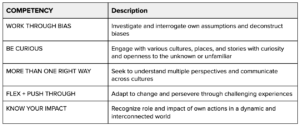
Figure 1: Sonoma Academy International Intersession Competencies
Following the success of that process, a group of colleagues and I attempted to follow a similar process to define competencies for our entire Intersession program. This process included reviewing programs from other schools, examining their competencies, reminding ourselves of our mission, and finding what resonated. During a faculty meeting, I put the well-regarded Deeper Learning Competencies in front of faculty and asked them to recall a recent Intersession course and consider student learning through the lens of these competencies.

As I walked around the room, it became clear that these competencies did not reflect the essence of our Intersession program. Faculty asserted that other programs supported growth in them, but that our Intersession program did something different, something uniquely part of the culture of learning at Sonoma Academy. It reminded me of the core values exercise where you cross out irrefutably important values like trust and integrity to determine what three values really define you. We can’t deny that the Deeper Learning Competencies are important, but they just did not define the learning and magic of our Intersession program.

A Strengths-Based Competency Development Approach
We quickly realized that we needed to develop a unique set of competencies that embodied our program. Facing a potentially years-long arduous process, we thought of a strengths-based development approach.

In an attempt to identify the strengths of our program, we decided to look at our Intersession debrief meeting notes. Luckily, we had just interviewed every single Intersession teacher and had taken copious notes. We asked the simple questions: What went well? What challenges were there? What would you do differently? What were your learning objectives? Can you share student work? Any ideas/thoughts for next year?
Through the notes, we discovered example after example where students embodied the outcomes teachers were hoping for from the course. After examining these examples, we were able to define the seven competencies that teachers wanted to develop in their students through our Intersession program. And just like the core values exercise, as unsettling as it is to cross out trust and integrity, it is equally rewarding to reveal the small set of values that define your program.
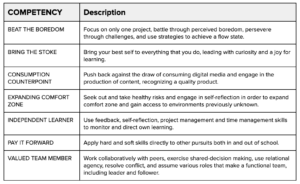
Figure 2: Sonoma Academy Local and Domestic Intersession Competencies
When we presented these competencies to faculty, you could see that they embodied the ethos of our program. Now, we are using these competencies to align proposals for new courses this year. And once we run our next set of courses, we will hold debrief meetings with a focus on collecting examples and artifacts that show student growth in order to refine the existing competencies.
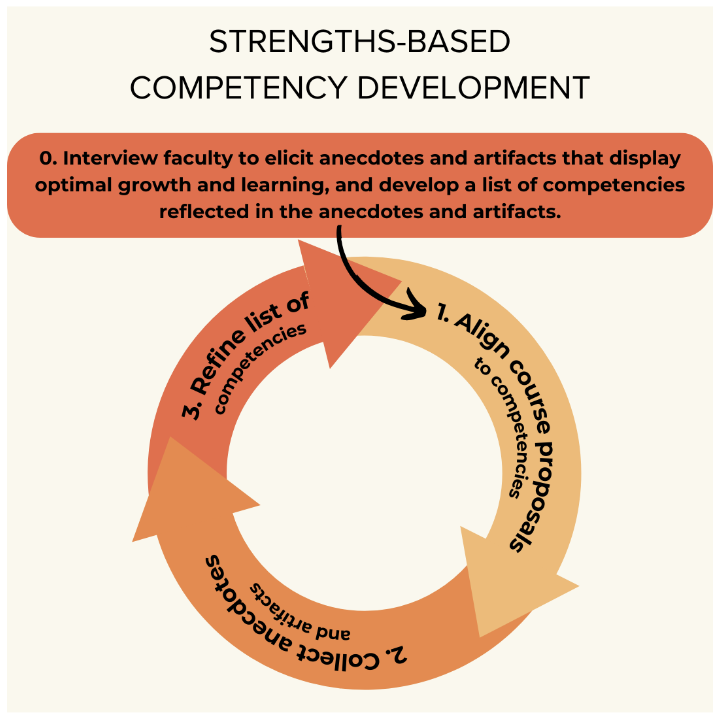
Figure 3: Strengths-Based Competency Development Approach
Long-term, we will design and implement training programs that support teachers in embodying experiential pedagogy and improving student growth in these competencies. And, we will continue to build on our strengths to refine a program that continues to represent the core of a Sonoma Academy experience.
References
Aguilar, E. (2018, February 4). How Core Values Foster Resilience in Educators. Bright Morning. Retrieved September 22, 2023, from https://assets-global.website-files.com/650894a3e9899e1797d705ee/650a00e200ec198ff68d3c67_Core%20Values_Art%20of%20Coaching.pdf
DEEPER LEARNING COMPETENCIES. (2013, April). Hewlett Foundation. Retrieved September 22, 2023, from https://hewlett.org/wp-content/uploads/2016/08/Deeper_Learning_Defined__April_2013.pdf
Saleebey, D. (1996). The strengths perspective in social work practice: extensions and cautions. Social Work, 1996 May;41(3)(PMID: 8936085), 296-305.
